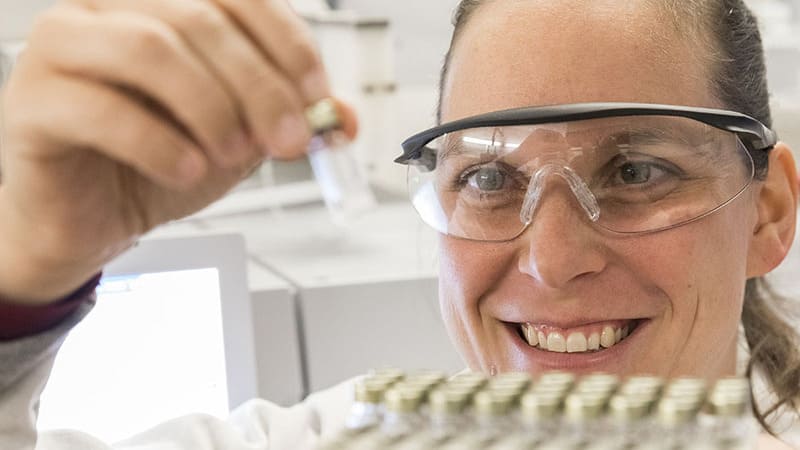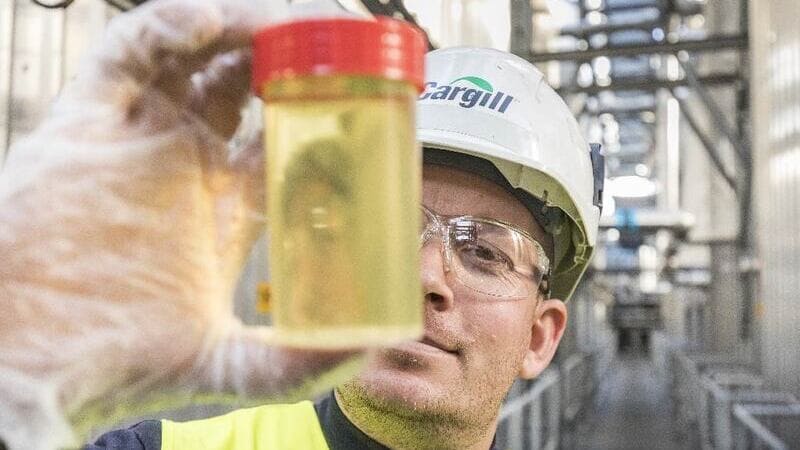Yes, industrially produced trans fats are still a problem. But not for long, promises a new Cargill commitment.
Read Time: 3 minutes
December 06, 2021
Perhaps you thought industrially produced trans fatty acids (iTFAs) were a thing of the past. After all, 40 countries regulate them. The World Health Organization (WHO) has a goal to eliminate them. And Cargill alone has removed about 1 billion pounds of them over the past 25 years.
Yet, in many parts of the world, these harmful sources of trans fat still lurk in foods like cookies and chips and French fries.
For a company committed to nourishing the world in a safe, responsible, sustainable way, that is not OK. So, as one of Cargill’s commitments under the Responsible Business Pledge for Better Nutrition, we are going all in on getting out of iTFAs.
“It’s such a powerful proof point of our mission,” says Jen Shomenta, who leads Cargill’s global edible oils business. “That’s why I’ve worked for Cargill for 30 years — to be connected to work like this.”
 One of our scientists examines samples of ingredients for oils in a Cargill lab
One of our scientists examines samples of ingredients for oils in a Cargill lab
Being first for our customers
On Dec. 6, Cargill announced it would become the first edible oil supplier to commit to the WHO’s recommended standard: a maximum of 2 grams of iTFA per 100 grams of fats or oils by the end of 2023.
“Many of our global customers have committed to meeting the WHO goal,” Jen notes. “When they see a global supplier like Cargill stepping up, it provides comfort and assurance that they’ll have consistency across their supply chain.”
PepsiCo is one of those customers.
“We’re thrilled to see Cargill’s commitment to reduce industrially produced trans fats in all their oils, says René Lammers, PepsiCo’s chief science officer. “This move aligns with PepsiCo’s efforts to reduce iTFAs in our foods and is a crucial part of our pep+ (PepsiCo Positive) journey to evolve our food and beverage portfolio to be better for the planet and people.”
 A Cargill colleague at our Izgem, Belgium edible oils plant examines oil samples
A Cargill colleague at our Izgem, Belgium edible oils plant examines oil samples
A history of expertise
Jen describes it as a good match of commitment and capability. Partially hydrogenated oils, the main source of iTFAs, were introduced in the early 20th century as a replacement for butter. They could help lengthen shelf life and decrease the need for refrigeration — but have since been linked to heart disease.
Cargill began raising the issue to its customers in the late 1990s — and was soon innovating with foodservice and packaged goods customers to create trans fat-free solutions with a proprietary cooking oil.
Today, Cargill’s food innovation centers offer numerous ways to help customers remove iTFAs without changing the taste or texture of our favorite foods. Three hundred of our customers use these alternatives and 89% of Cargill’s portfolio meets the WHO’s 2% maximum.
Now, it’s time to address the remaining 11%.
 Cargill colleagues at a food innovation center in China
Cargill colleagues at a food innovation center in China
Come change with us
“We’re super proud to make this commitment after a long journey and to be the first to ensure that 100% of our portfolio is compliant,” enthuses Jen. “Our depth of knowledge and expertise is a great asset.”
Cargill will use a two-part approach: reformulating oils to help customers transition to alternatives — especially in countries where there is no legislative mandate — and investing in upgrades to our facilities. Some iTFAs result from the high heat used in the refining process. Process and equipment enhancements will help change that.
“We definitely have the global footprint, the innovation and the capabilities,” says Jen, “but we also have the will and the investment. By making this commitment publicly, we’re hoping to make the case for the whole industry to change with us. Then we can create a safer, more consistent, better food supply for consumers around the world.”
